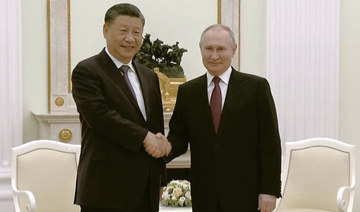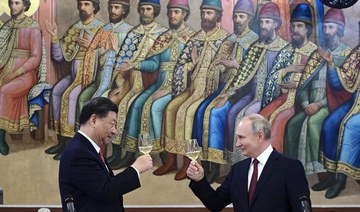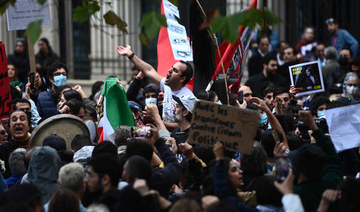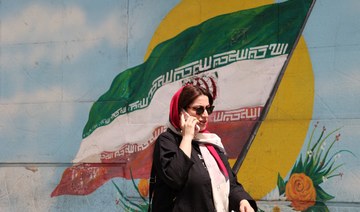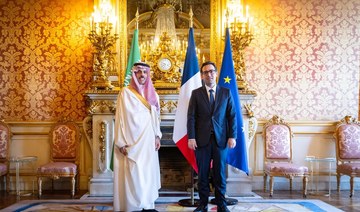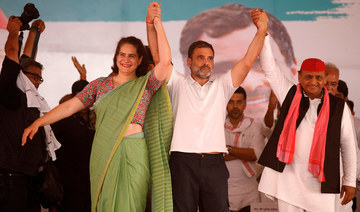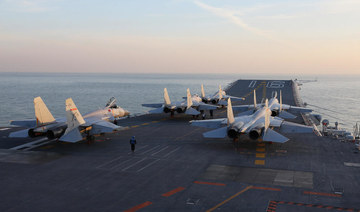WASHINGTON: The US military must be ready for possible confrontation with China, the Pentagon’s leaders said Thursday, pushing Congress to approve the Defense Department’s proposed $842 billion budget, which would modernize the force in Asia and around the world.
“This is a strategy-driven budget — and one driven by the seriousness of our strategic competition with the People’s Republic of China,” Defense Secretary Lloyd Austin said in testimony before the House Appropriations subcommittee on defense.
Pointing to increases in new technology, such as hypersonics, Austin said the budget proposes to spend more than $9 billion, a 40 percent increase over last year, to build up military capabilities in the Pacific and defend allies.
The testimony comes on the heels of Chinese leader Xi Jinping’s visit to Moscow, which added to concerns that China will step up its support for Russian President Vladimir Putin’s war on Ukraine and increasingly threaten the West.
China’s actions, said Gen. Mark Milley, chairman of the Joint Chiefs of Staff, “are moving it down the path toward confrontation and potential conflict with its neighbors and possibly the United States.” He said deterring and preparing for war “is extraordinarily expensive, but it’s not as expensive as fighting a war. And this budget prevents war and prepares us to fight it if necessary.”
Rep. Hal Rogers, R-Kentucky, pressed the defense leaders on Xi’s meeting with Putin and its impact on US competition with China, which he called “the elephant in the room.” The US, he said, is “at a crucial moment here.”
The growing alliance between China and Russia, two nuclear powers, and Xi’s overtures to Putin during the Ukraine war are “troubling,” Austin said.
He added that the US had not yet seen China provide arms to Russia, but if it does, “it would prolong the conflict and certainly broaden the conflict potentially not only in the region but globally.”
Milley, who will retire later this year, said the Defense Department must continue to modernize its forces to ensure they will be ready to fight if needed. “It is incumbent upon us to make sure we remain No. 1 at all times” to be able to deter China, he said.
Two decades of war in Iraq and Afghanistan eroded the military’s equipment and troop readiness, so the US has been working to replace weapons systems and give troops time to reset. It’s paid off, Milley told Congress.
“Our operational readiness rates are higher now than they have been in many, many years,” Milley said. More than 60 percent of the active force is at the highest states of readiness right now and could deploy to combat in less than 30 days, while 10 percent could deploy within 96 hours, he said.
Milley cautioned that those gains would be lost if Congress can’t pass a budget on time, because it will immediately affect training.
Members of the panel, including Rep. Mario Diaz-Balart, R-Fla., also made it clear that while they support the ongoing US assistance to Ukraine, “the days of blank checks are over.” And they questioned the administration’s ultimate goal there.
Milley said the intent is to make sure that Ukraine remains a free and independent country with its territory intact, maintaining global security and the world order that has existing since World War II.
“If that goes out the window,” he said, “we’ll be doubling our defense budgets at that point, because that will introduce not an era of great power competition, that will begin an era of great power conflict. And that will be extraordinarily dangerous for the whole world.”
The hearing was likely one of Milley’s last in front of Congress. His four-year term as chairman — capping a 43-year military career — ends in October. While many members took the opportunity to thank him for those years of service, it was also an opportunity to press him on one of the darkest moments of his chairmanship — the loss of 13 service members to a suicide bomber at Abbey Gate during the chaotic American evacuation from Afghanistan.
Questions remain about the bombing, and Republicans have criticized President Joe Biden’s decision to completely withdraw from Afghanistan in August 2021. During an intense two-week evacuation, which took place as Kabul fell to the Taliban, US forces got more than 120,000 personnel out of the country, but paid a large price in the lives of US service members and Afghans. The withdrawal also left behind many Afghans who worked with and supported US troops during the war, and efforts to get them out continue.
“I can think of no greater tragedy than what happened at Abbey Gate. And I have yet to fully reconcile myself to that entire affair,” Milley told the panel members. He called the end state, which left the Taliban in control of the country, a strategic failure.
But that “did not happen in the last 19 days or even the last 19 months. That was a 20-year war,” Milley said. “There were decisions made all along the way which culminated in what the outcome was. And there’s many many lessons to be learned.”
Pentagon: Budget readies US for possible China confrontation
https://arab.news/8snrz
Pentagon: Budget readies US for possible China confrontation
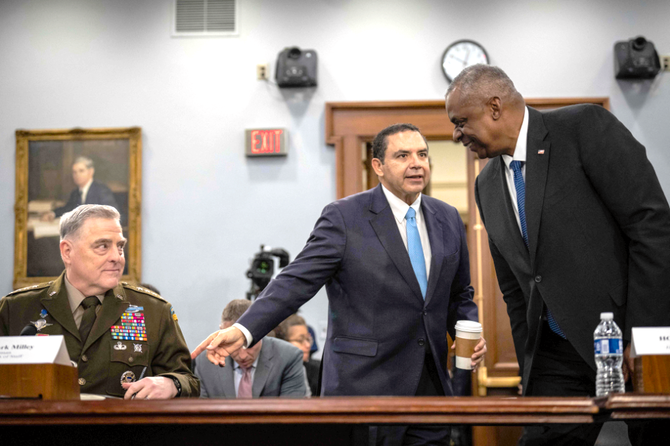
- ‘This is a strategy-driven budget,’ US Defense Secretary Lloyd Austin said.
- The testimony comes on the heels of Chinese leader Xi Jinping’s visit to Moscow
Supporters, opponents of Tehran clash in London
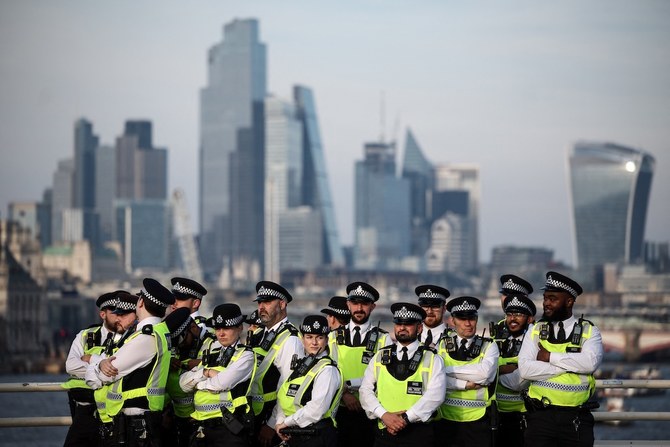
- Event to mark death of Iranian President Ebrahim Raisi descends into violence
- 4 injured, 1 arrested: Metropolitan Police
LONDON: Clashes in London between supporters and opponents of Iran’s government on Friday left four people with injuries, Sky News reported on Saturday.
One person was arrested on suspicion of violent disorder following the clashes.
Metropolitan Police officers were called to the scene at about 6 p.m. following reports of violence.
Pro-Tehran demonstrators had held an event to mark the death of President Ebrahim Raisi, who died in a helicopter crash last week.
Outside the venue, anti-Tehran protesters held a counter-demonstration, and clashes broke out between the two sides.
A Metropolitan Police spokesperson said four people were treated by paramedics for injuries. “Their injuries are not believed to be either life threatening or life changing,” the spokesperson added.
“Further inquiries will now follow to establish what further offences took place and to identify those involved.”
G7 says will try to use frozen Russian assets to help Ukraine
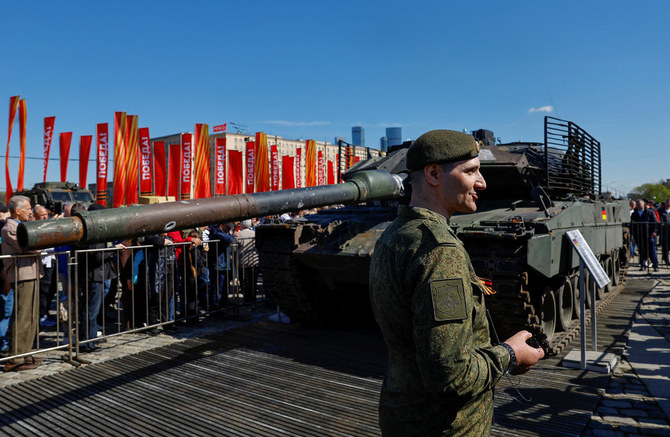
STRESA: The G7 will explore ways of using the future income from frozen Russian assets to help Ukraine, finance chiefs from the Group of Seven industrial democracies said on Saturday, according to a draft statement seen by Reuters.
The G7 froze some $300 billion of Russian assets shortly after Moscow invaded its neighbor in February 2022.
“We are making progress in our discussions on potential avenues to bring forward the extraordinary profits stemming from immobilized Russian sovereign assets to the benefit of Ukraine,” the draft statement said.
The statement will not undergo significant changes before a final version to be released later on Saturday, a G7 source said.
Millions vote in India’s grueling election with Modi’s party likely to win a third term
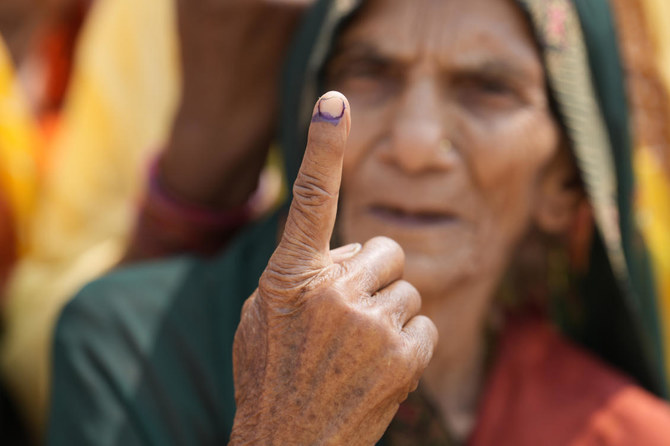
- Next-to-last phase of voting with temperatures forecast to surge to 47° Celsius in the capital New Delhi
- More than 111 million people in 58 constituencies across eight states and federal territories are eligible to vote
NEW DELHI: Millions of Indians are voting Saturday in the next-to-last round of a grueling national election with a combined opposition trying to rattle Prime Minister Narendra Modi’s campaign for a third-consecutive term for himself and his Hindu nationalist party.
Many people lined polling stations before the start of voting at 7 a.m. to avoid the blazing sun later in the day at the peak of Indian summer. The temperature soared to 43 Celsius (109.4 Fahrenheit) in the afternoon in the Indian capital.
Lakshmi Bansal, a housewife, said while the weather was hot, people usually went out to shop and even attend festivals is such heat.
“This (election) is also like a festival, so I don’t have a problem voting in the heat,” Bansal said.
Saturday’s voting in 58 constituencies, including seven in New Delhi, will complete polling for 89.5 percent of 543 seats in the lower house of Parliament.
The voting for the remaining 57 seats on June 1 will wrap up a six-week election. The votes will be counted on June 4.
President Droupadi Murmu and External Affairs Minister S. Jaishankar were among the early voters. Opposition Congress party leaders, Sonia Gandhi and her son Rahul Gandhi, also voted in New Delhi.
Mehbooba Mufti, a former top elected official of Indian-controlled Kashmir, held a protest with her supporters Saturday claiming that scores of her party workers were detained by the police to prevent them from voting. Mufti, the chief of the People’s Democratic Party who is contesting the parliamentary election in the Anantnag-Rajouri district, said she complained to election officials.
In West Bengal state, workers belonging to the All India Trinamool Congress party, blocked the car of Agnimitra Paul, one of Modi’s Bharatiya Janata Party candidates, as she proceeded to vote in Medinipur constituency. The two parties are rivals in the state and their workers often clash on the streets.
This election is considered one of the most consequential in India’s history and will test Modi’s political dominance. If Modi wins, he’ll be only the second Indian leader to retain power for a third term, after Jawaharlal Nehru, the country’s first prime minister.
A less-than-expected voter turnout in the previous five rounds of voting seems to have left both sides guessing about the outcome of the election.
Election authorities said they are taking steps to ensure voters’ comfort, such as setting up fans and tents and providing drinking water.
Most polls predict a win for Modi’s Hindu nationalist Bharatiya Janata Party, which is up against a broad opposition alliance led by the Indian National Congress and powerful regional parties.
Modi was involved in a highly acrimonious and mudslinging campaign with the opposition, led by Rahul Gandhi, the scion of the Nehru-Gandhi family that has produced three prime ministers.
“When the polls began it felt like a one-horse race, with Modi leading from the front. But now we are seeing some kind of shift,” political analyst Rasheed Kidwai said. “The opposition is doing better than expected and it appears that Modi’s party is rattled. That’s the reason you see Modi ramping up anti-Muslim rhetoric to polarize voters.”
Kidwai said the opposition has challenged Modi by centering its campaign narrative on social justice and rising unemployment, making the contest closer than expected.
Modi ran his campaign like a presidential race, a referendum on his 10 years of rule. He claimed to help the poorest with charity, free health care, providing toilets in their homes, and helping women get free or cheap cooking gas cylinders.
But he changed tack after a poor turnout of voters in the first round of the election and began stirring Hindu nationalism by accusing the Congress party of pandering to minority Muslims for votes.
Hindus account for 80 percent, and Muslims nearly 14 percent, of India’s over 1.4 billion people.
Manish Bhatia, a New Delhi voter, said that “politics on the basis of caste and religion is dangerous for the country,” adding that voting should be based on how candidates perform.
Nearly 970 million voters — more than 10 percent of the world’s population — were eligible to elect 543 members to the lower house of Parliament for five years.
Voters’ relative apathy has surprised some political analysts. In the five rounds of polling the voter turnout ranged between 62.2 percent to 69.16 percent — averaging 65.9 percent. By comparison, India’s 2019 national election registered the highest-ever voter turnout — 67.11 percent. Modi’s BJP won 303 seats in parliament in 2019.
Modi’s inauguration of a massive Hindu temple for the most revered Lord Rama, his massive roadshows, and big public rallies raised the BJP’s hopes of a massive a surge of voters in its favor.
The current prim minister came to power in 2014, dislodging the Congress party that governed the country for nearly 55 years after India won independence from British colonialists in 1947.
Before the election, the opposition INDIA alliance was seen bickering, but it has since held together, particularly after two chief ministers of two opposition-controlled states were sent to jail on corruption charges. Both deny the accusations.
One of them — New Delhi Chief Minister Arvind Kejriwal — has since been released on bail and returned to the campaign trail.
In March, Gandhi completed a 6,713-kilometer (4,171-mile) walk across the country, starting in the violence-hit northeastern state of Manipur, to raise awareness on issues of poverty, unemployment, and democracy with voters.
“The walk helped Gandhi boost his image as a serious politician among the voters, and that is helping the opposition,” Kidwai, the political anaylast, said.
India’s massive election faces heatwave challenge in penultimate phase
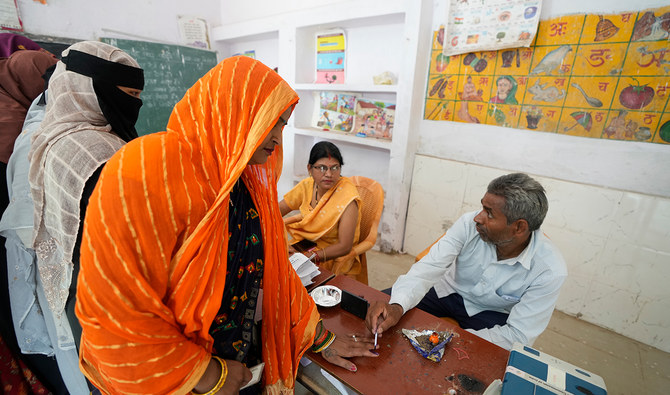
- The Election Commission has deployed paramedics with medicines and oral hydration salts at polling stations in Delhi
- In Haryana, people residing near polling booths pitched in to help voters, handing out cold drinks, dry fruits and milk
NEW DELHI: The world’s largest election may become the hottest on Saturday, as Indians participate in the next-to-last phase of voting with temperatures forecast to surge to 47 degrees Celsius (117 degrees Fahrenheit) in the capital New Delhi.
More than 111 million people in 58 constituencies across eight states and federal territories are eligible to vote in the general election’s sixth phase, which recorded a turnout of 10.82 percent in the first two hours of the 11-hour poll.
The overall turnout in the same phase of the last elections in 2019 was about 63 percent.
“There is a concern, but we hope that people will overcome the fear of the heatwave and come and vote,” Delhi Chief Electoral Officer P. Krishnamurthy told Reuters.
Voting in the elections began on April 19 and will conclude on June 1, with counting set for June 4.
Prime Minister Narendra Modi, leader of the Hindu-nationalist Bharatiya Janata Party (BJP), who is favored to win a third consecutive term, also asked people to “vote in large numbers” in a message on social media platform X on Saturday.
The Election Commission has deployed paramedics with medicines and oral hydration salts at polling stations in Delhi, which have additionally been equipped with mist machines, shaded waiting areas and cold water dispensers for voters.
In some parts of the northern state of Haryana, people residing near polling booths also pitched in to help voters beat the heat, handing out cold drinks, dry fruits and milk free of cost.
Among those who cast their ballot early in Delhi were Rahul Gandhi, leader of the main opposition Congress party and Modi’s main rival, his mother Sonia Gandhi and sister Priyanka Vadra.
“We are keeping all our grievances aside and casting our vote for our constitution and democracy,” Vadra told reporters.
Opposition leader and Delhi Chief Minister Arvind Kejriwal, whose bail after pre-trial detention of nearly two months in a graft case has given fresh impetus to the opposition campaign, also voted in the capital.
Price rise and unemployment were two of the major issues mentioned by voters to Reuters when asked about the factors that determined their ballot.
“The government boasts about fast economic growth but the reality on the ground is very different,” said Delhi voter Fazal, 46, who only gave his first name and works at a multinational corporation, adding he also voted to “save democracy.”
Ashok Ghana, a plumber in the eastern state of Odisha, who said he voted for the BJP, added that “price rise and the non-availability of jobs” were the issues he considered.
Among those who voted based on the situation in their region was property dealer Praveen Chauhan, 43, in Delhi.
“My main issues are clean water, electricity, access to good health care and education,” he said, adding that the Kejriwal-led Delhi government “has given us that till now.”
While the heatwave was a concern in Delhi, a cyclone that is expected to hit land tomorrow was being closely watched in eastern Odisha and West Bengal, parts of which are also voting on Saturday.
Taiwan calls China’s military drills a ‘blatant provocation’ to world order
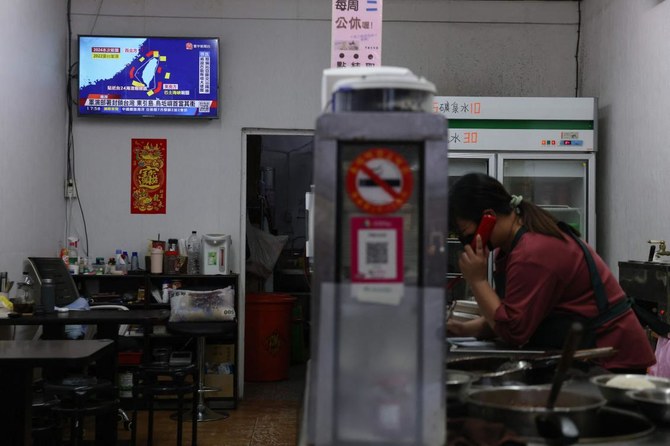
- The drills were launched three days after Taiwan’s President Lai Ching-te took office
- Exercises involved simulating strikes targeting the island’s leaders as well as its ports and airports
TAIPEI: China’s two-day military drills around Taiwan were a “blatant provocation to the international order,” Taipei said in a statement Saturday after the war games encircling the self-ruled island ended.
The drills were launched three days after Taiwan’s President Lai Ching-te took office and made an inauguration speech that China denounced as a “confession of independence.”
China, which claims Taiwan as part of its territory, regards Lai as a “dangerous separatist.”
By Friday evening, a presenter for state-run military news channel CCTV-7 said the Chinese army had “successfully completed” the operation dubbed “Joint Sword-2024A.”
In a statement, Lai’s presidential spokesperson Karen Kuo reiterated that ensuring peace and stability across the region was “related to the common interests of the international community.”
“However, China’s recent unilateral provocation not only undermines the status quo of peace and stability in the Taiwan Strait but it is also a blatant provocation to the international order, triggering serious concern and condemnation from the international community,” she said.
Kuo added that Taiwan hopes “China will take the safety and happiness of the people on both sides into consideration, pursue mutual benefit, coexistence... stop all kinds of political and military intimidations on Taiwan and the region.”
Self-ruled Taiwan has its own democratically elected government, military and currency, but Beijing has said it would never renounce the potential use of force to bring the island under its control.
Chinese military analysts told state news agency Xinhua that the People’s Liberation Army vessels had inched “closer than ever before” to Taiwan’s shores during the two-day military drills.
The exercises involved simulating strikes targeting the island’s leaders as well as its ports and airports, they said.
In regards to China’s various military actions, Kuo said that “the president and the national security team have a full grasp of the situation” and called for the public to “rest assured.”



